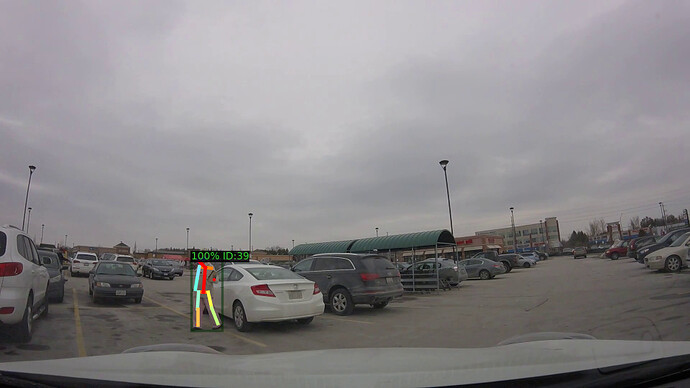I made a dummy model just to have a play around with
class Net(nn.Module):
def __init__(self):
super(Net, self).__init__()
self.conv1 = nn.Conv3d(in_channels=1, out_channels=64, kernel_size=(1,7,7), stride=(1, 2, 2), padding=(0, 3, 3), bias=False)
self.bn1 = nn.BatchNorm3d(64, track_running_stats=True)
self.relu = nn.ReLU(inplace=True)
self.pool = nn.MaxPool3d(kernel_size=(1, 3, 3), stride=(1, 2, 2), padding=(0, 1, 1))
self.conv2 = nn.Conv3d(in_channels=64, out_channels=32, kernel_size=(1,7,7), stride=(1, 2, 2), padding=(0, 3, 3), bias=False)
self.fc1 = nn.Linear(320, 120)
self.fc2 = nn.Linear(120, 84)
self.fc3 = nn.Linear(84, 1)
def forward(self, x):
x = F.relu(self.conv1(x))
x = self.bn1(x)
x = self.relu(x)
x = self.pool(x)
x = self.conv2(x)
x = F.relu(x)
x = self.pool(x)
x = x.reshape(x.size(0), -1)
x = F.relu(self.fc1(x))
x = F.relu(self.fc2(x))
x = self.fc3(x)
return x
net = Net().cuda()
import torch.optim as optim
criterion = nn.CrossEntropyLoss()
optimizer = optim.SGD(net.parameters(), lr=0.001, momentum=0.9)
for epoch in range(2):
running_loss = 0.0
optimizer.zero_grad()
inputs = torch.stack(kypnts_list, dim=1).unsqueeze(0).to("cuda")
outputs = net(inputs)
loss = criterion(inputs.squeeze(0), intentions.cuda())
loss.backward()
optimizer.step()
But when I try to train the model, I get the following error:
---------------------------------------------------------------------------
RuntimeError Traceback (most recent call last)
<ipython-input-184-78c208c097a2> in <module>
45
46 outputs = net(inputs)
---> 47 loss = criterion(inputs.squeeze(0), intentions.cuda())
48 loss.backward()
49 optimizer.step()
~\miniconda3\envs\torch_env\lib\site-packages\torch\nn\modules\module.py in __call__(self, *input, **kwargs)
530 result = self._slow_forward(*input, **kwargs)
531 else:
--> 532 result = self.forward(*input, **kwargs)
533 for hook in self._forward_hooks.values():
534 hook_result = hook(self, input, result)
~\miniconda3\envs\torch_env\lib\site-packages\torch\nn\modules\loss.py in forward(self, input, target)
914 def forward(self, input, target):
915 return F.cross_entropy(input, target, weight=self.weight,
--> 916 ignore_index=self.ignore_index, reduction=self.reduction)
917
918
~\miniconda3\envs\torch_env\lib\site-packages\torch\nn\functional.py in cross_entropy(input, target, weight, size_average, ignore_index, reduce, reduction)
2019 if size_average is not None or reduce is not None:
2020 reduction = _Reduction.legacy_get_string(size_average, reduce)
-> 2021 return nll_loss(log_softmax(input, 1), target, weight, None, ignore_index, None, reduction)
2022
2023
~\miniconda3\envs\torch_env\lib\site-packages\torch\nn\functional.py in nll_loss(input, target, weight, size_average, ignore_index, reduce, reduction)
1838 ret = torch._C._nn.nll_loss(input, target, weight, _Reduction.get_enum(reduction), ignore_index)
1839 elif dim == 4:
-> 1840 ret = torch._C._nn.nll_loss2d(input, target, weight, _Reduction.get_enum(reduction), ignore_index)
1841 else:
1842 # dim == 3 or dim > 4
RuntimeError: 1only batches of spatial targets supported (non-empty 3D tensors) but got targets of size: : [1]
The label that I am feed in here is 0, where 0 means the pedestrian will not be crossing and 1 where the pedestrian will cross.
